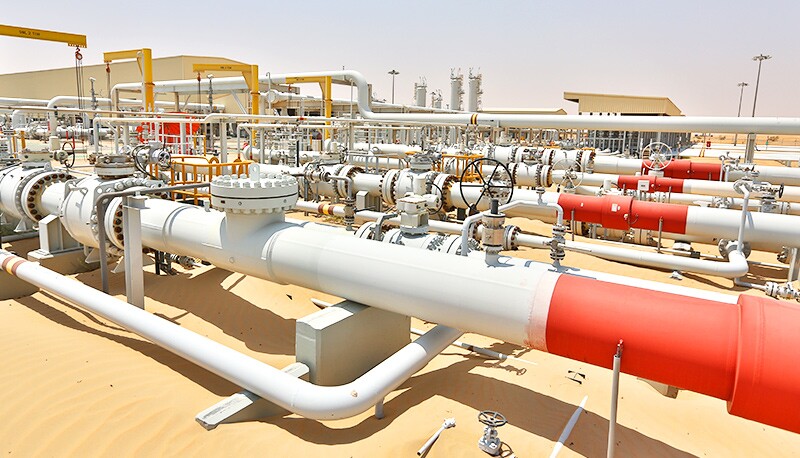The Abu Dhabi National Oil Company (ADNOC) announced this week that its implementation of artificial intelligence (AI) technologies generated an additional half-billion dollars in value last year. The company credited more than 30 AI programs for contributing to the gains, highlighting their impact across its entire value chain.
ADNOC also reported that these AI initiatives helped to prevent the emission of up to a million metric tons of CO2 from 2022 to 2023.
"Artificial intelligence is one of the most important economic and social game changers of our era, and it can play a crucial role in accelerating a just, orderly, and equitable energy transition," Sultan Ahmed Al Jaber, CEO of ADNOC, stated. “At ADNOC, we have integrated artificial intelligence across our operations, from the control room to the boardroom, and it is enabling us to make smarter decisions and better protect our people and the environment.”
One key AI tool developed by ADNOC is its Centralized Predictive Analytics and Diagnostics (CPAD) program. This system allows for remote monitoring of equipment, significantly reducing the frequency of unplanned shutdowns and optimizing routine maintenance activities. As a result, operational efficiency has improved along with production.
The technology counts as one of several that ADNOC has shared new details about at recent industry conferences.
A paper published by ADNOC authors last year, OTC 32150, reported that the CPAD system helped achieved a 20% reduction in rotating equipment maintenance costs, attributed to deferred or optimized maintenance and shutdowns.
The program, which managed more than 2,500 pieces of equipment, also increased production availability by 2 to 3% by preventing unplanned shutdowns. Further benefits included a 20% reduction in unscheduled maintenance costs, a 15% increase in equipment mean time between inspections, and a 3 to 4% reduction in production loss through early identification and better management of equipment failures or underperformance.
In a separate initiative, ADNOC deployed an unsupervised learning model that can predict failures in electrical submersible pumps (ESPs) used for water injections at an oil field.
A study shared in October, SPE 216642, said the warnings come 30 to 90 days before actual failures occur. And with an accuracy rate of 75%, the predictive tool has become a cornerstone in ADNOC's planning and workover candidate selection processes.
Additionally, authors from the national oil company also said the AI model has reduced the mean time to recover from downtime by 75% while also prolonging the operational life of the ESPs.
Beyond these benefits, ADNOC has also been focusing on leveraging AI intelligence to enhance its environmental performance. The company said it developed one AI tool capable of predicting emission sources up to 5 years in advance across hundreds of operational locations.
At recent industry conferences the company has shared other insights into such initiatives including one about implementing remote operations at an onshore facility that supports a field with more than 1,000 wells that produce around 570,000 B/D.
In SPE 216229, authors from ADNOC said the effort involved a host of new-age tech including industrial internet of things (IIoT), connected workers, remote data monitoring, and AI models.
The result of the pilot project included a 10% optimization of total annualized man-hours by reallocating low-critical activities from maintenance to operations, a 30% reduction in staff movement to the remote facilities—resulting in an 8,000 kg/month reduction in CO2 emissions.
The paper concluded by noting that as the financial gains are further established, the pilot project may serve as a template for all of ADNOCs remote onshore facilities.
Other technologies ADNOC is touting as helping it realize massive AI value include computer vision programs aimed at improving safety and AI-visualizations of reservoirs for development planning.
For Further Reading
OTC 32150 Centralized Predictive Analytics & Diagnostics (CPAD) Program by Mariam Abdulla Al Hendi, Faisal Masoud Al Alawai, Shahin Abdelsamad Eisawy, and Abdulla Omar Al Abdouli, ADNOC.
SPE 216642 Deployment of AI/ML Based Predictive Model for Early Detection of ESP Failure by M. Aslam, N. Reddicharla, A. Elmansour, K. Alshehhi, ADNOC, et al.
SPE 216229 Resource Optimization at Remote Facilities by Leveraging Advance Maintenance Practices TPM (Total Productive Maintenance), ODR (Operator Driven Reliability) and Industry 4.0 Technologies by Muhammad Shahzad Ahmed, Ahmed Yousef Alhammadi, ADNOC Onshore, et al.


